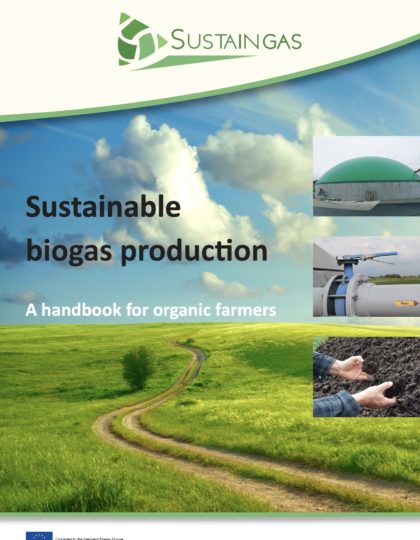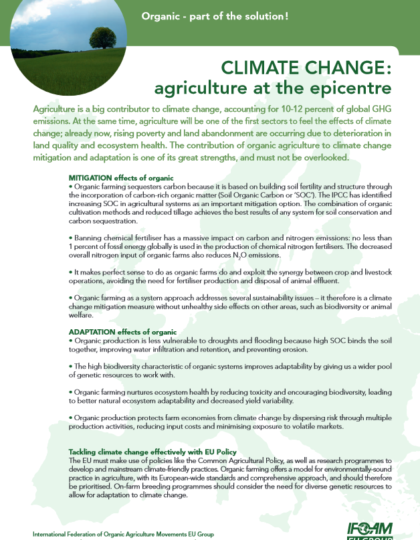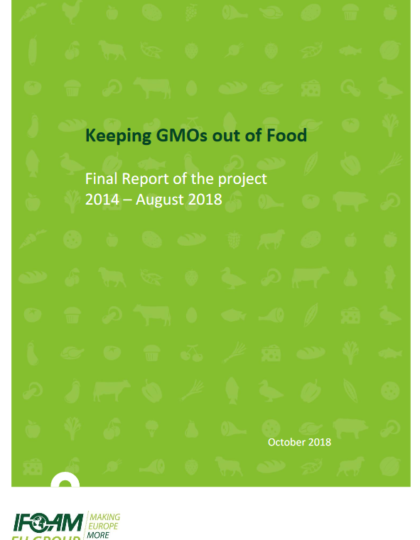In this section you can find all our resources organised by type, topic and sorted chronologically. Click on the kind of resources you’re searching for and browse our latest publications!
Library
Factsheets and manuals

2024 EU elections - Organic movement's manifesto
Organics Europe hereby presents a manifesto that articulates a vision for vibrant European rural areas where agriculture is sustainable, resilient,…
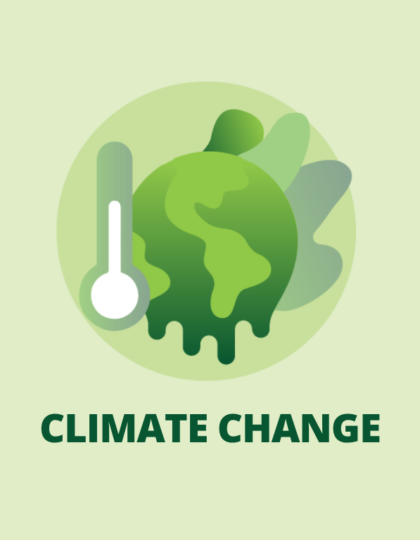
01/03/2024
Climate change
Organic: Safeguarding climate and nature
Climate change and its consequences threaten agricultural systems and our food production. Farmers are already facing big challenges as a…
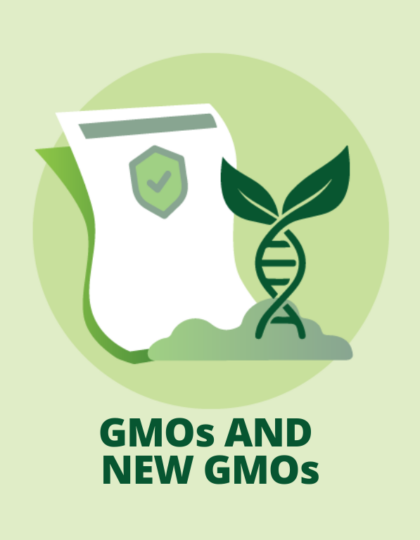
19/07/2023
GMOs
Global Safety & Risk Assessment Protocol for New Genomic Technologies
The environmental release and widespread production and consumption of genetically modified organisms (GMOs) since the mid-1990s has raised serious ecological,…

06/12/2022
Plant health care
Press briefing: EU’s first legally binding pesticide reduction targets under threat
IFOAM Organics Europe & GLOBAL 2000 press briefing on the background and threats to the EU Sustainable Use of Plant…
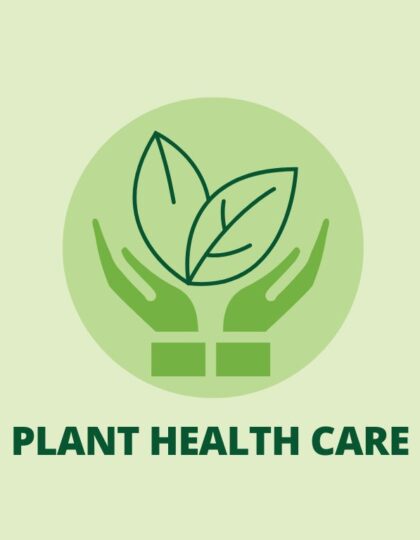
09/06/2022
Plant health care
Proposal to develop a new indicator for monitoring the Farm to Fork pesticide reduction target
IFOAM Organics Europe calls for the European Commission to develop a new indicator for monitoring the Farm to Fork pesticide…
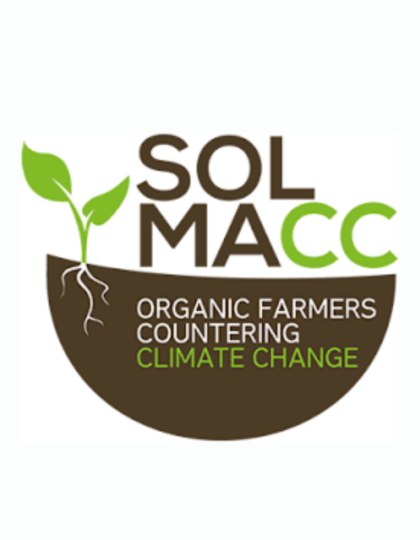
Climate-friendly practices on your farm - A practical manual
Extreme temperatures and weather events during the last springs and summers have left no doubt about the relevance of climate…
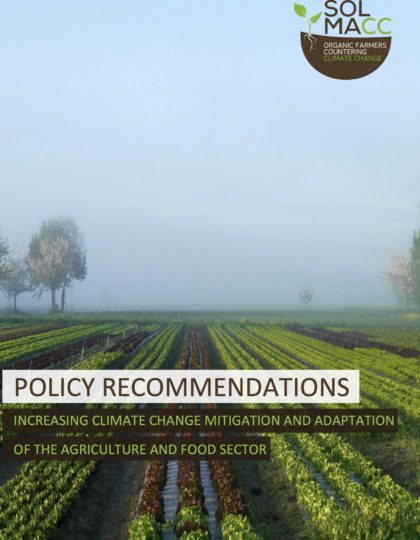
SOLMACC – Policy recommendations
Institute: Ekologiska Landbrukarna, FiBL , Bioland, AIAb and IFOAM EU
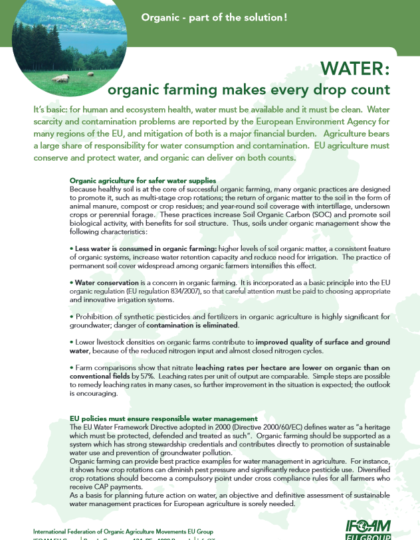
22/06/2009
Water
Organic - part of the solution! Water
Reports and studies

02/12/2024
Plant health care
Introducing the Pesticide Use and Risk Indicator (PURI): A new approach to measuring pesticide risks
The current Harmonized Risk Indicator 1 (HRI 1) has significant weaknesses that lead to misleading trends in pesticide use reduction.…
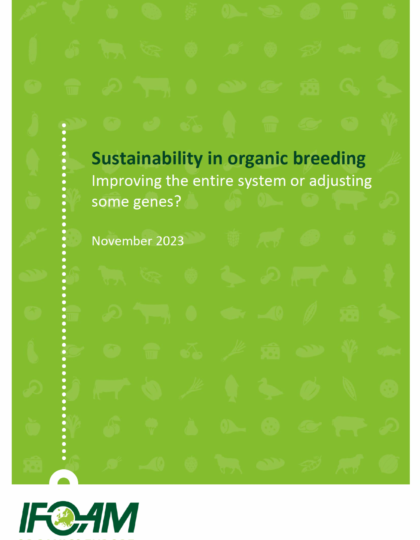
Sustainability in organic breeding. Improving the entire system or adjusting some genes?
Sustainability in organic breeding. Improving the entire system or adjusting some genes? is a briefing providing an overview of the…

23/02/2023
Plant health care
Toxicological comparison of pesticide active substances approved for conventional vs. organic agriculture in Europe
There is much debate about whether the (mostly synthetic) pesticide active substances (AS) in conventional agriculture have different non-target effects…

12/12/2022
Plant health care
Closing nutrient cycles: Reshaping EU agri-food system for greater autonomy and sustainability - Event report
As announced in the EU Biodiversity and Farm to Fork strategies and in the Zero Pollution Action Plan, the European…

Report on contaminants present in food - Evaluation of survey results
This report contains the results of a survey on contaminants on food and how to deal with them. The survey…
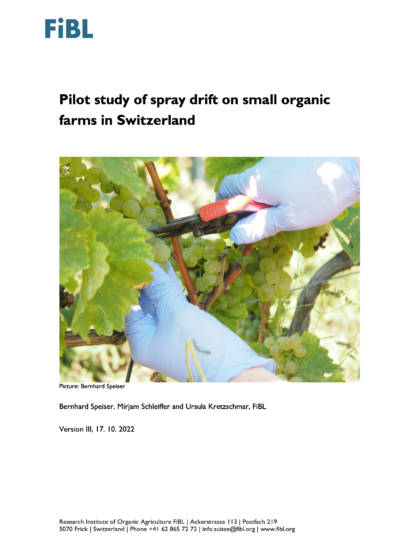
Pilot study of spray drift on small organic farms in Switzerland
Spray drift is a major problem for organic farmers, particularly in small fields (Speiser and Kretzschmar, 2021). To support the…

Cases of pesticide residues – Illustrating the decisions taken by control bodies and control authorities in Europe
The handling of organic products contaminated with pesticide residues is highly diverse within Europe. Also, differences between different actors within…
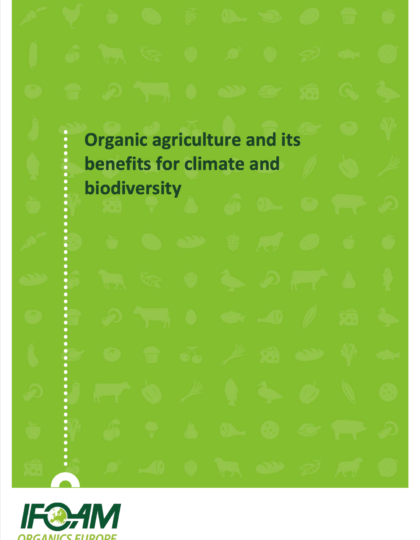
Organic agriculture and its benefits for climate and biodiversity
Changing the way we produce food can make a big difference in mitigating climate change, can help farmers to adapt…

Towards a just transition of food systems - Challenges and policy levers for France
IDDRI “Towards a just transition of food systems – Challenges & policy levers for France”. Aubert, Gardin (IDDRI) & Alliot…

Organic Agriculture and the Sustainable Development Goals – Part of the Solution
Institute: EOSTA and Nature & More – Author: Simon de Schaetzen
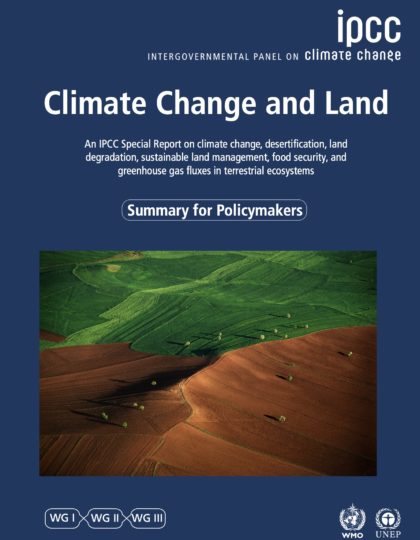
Climate Change and Land - An IPCC special report on climate change, desertification, land degradation, sustainable land management, food security, and greenhouse gas fluxes in terrestrial ecosystems
Institute: Intergovernmental Panel on Climate Change (IPCC) – Authors: 107 experts from 52 countries
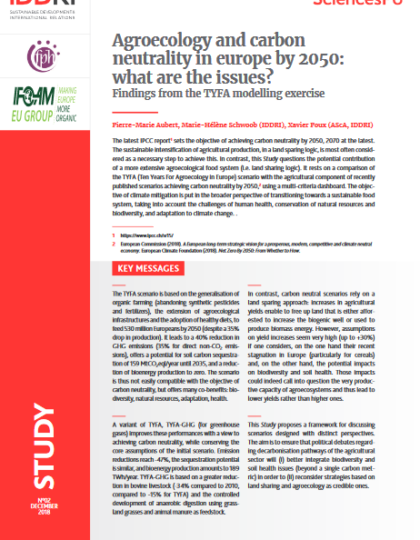
Agroecology and carbon neutrality in Europe by 2050: what are the issues?
Institute: Institute for Sustainable Development and International Relations (IDDRI) – Authors: Pierre-Marie Aubert, Marie-Hélène Schwoob, Xavier Poux


![Pesticides in conventional and organic farming [Fact-check]](https://www.organicseurope.bio/content/uploads/2022/09/comm_website_THUMBNAILS-420x540.png)

